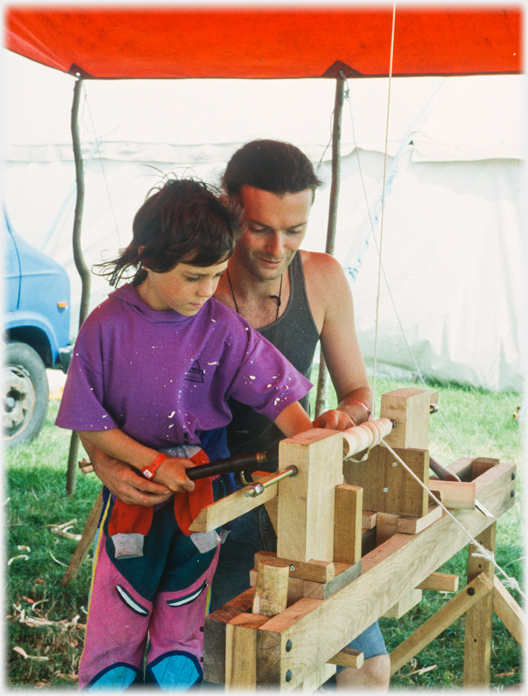
Guided Re-invention
Rather than behaving anti-didactically, one should recognise that the learner is entitled to recapitulate in a fashion of mankind. Not in the trivial matter of an abridged version, but equally we cannot require the new generation to start at the point where their predecessors left off. (1960)
[Guided reinvention is] striking a subtle balance between the freedom of inventing and the force of guiding, between allowing the learner to please himself and asking him to please the teacher. Moreover, the learner’s free choice is already restricted by the “re” of “reinvention”. The learner shall invent something that is new to him but well-known to the guide.
Hans Freudenthal (1991)

“The Guided Reinvention of Language”
Andy Lock (1980)

There is a respectable chestnut which asks whether our simple numbers (e.g. 12, 13, 14...) were invented by humans, or discovered by them: did we
think them up
 Abstractions - things we think up - are central to our mental lives.
or were they lying around to be found? Currently favoured is the suggestion that low numbers are discovered, and the higher numbers invented: people discover the difference between three eggs and four eggs, but invent that between 25 and 26 trees. Is there a parallel in guided re-invention? This happy phrase was brought to English speakers by its use as a
book title,
Abstractions - things we think up - are central to our mental lives.
or were they lying around to be found? Currently favoured is the suggestion that low numbers are discovered, and the higher numbers invented: people discover the difference between three eggs and four eggs, but invent that between 25 and 26 trees. Is there a parallel in guided re-invention? This happy phrase was brought to English speakers by its use as a
book title,
 To the start of language, does that take us away from the start for each of us?
where it summarises neatly the interaction of the new generation with the previous
generations’ language learning.
To the start of language, does that take us away from the start for each of us?
where it summarises neatly the interaction of the new generation with the previous
generations’ language learning.
 On the basis of language acquisition.
On the basis of language acquisition.
Applying this to the more abstract problem, it warns us to avoid
dichotomies
 Facing false choices.
Facing false choices.
such as invention versus discovery, and to seek interactions. The guidance here becomes that of human imagination working on human discoveries.
The 1960 quote is from the proceedings of the International Union of History and Philosophy in Utrecht in January 1960 and published by D. Reidel Publishing Company of Dordrecht in 1961. And the second part of the quote is from his lectures Revisiting Mathematical Education, China Lectures, publisher in Dordrecht by Kluwer Academic Publishing. The quote is the title of Andy Lock’s book which was published by Academic Press.
The photograph was taken at a demonstration of a foot driven lathe (safe for children to use) during the 1992 WOMAD Festival at the Rivermead Centre in Reading, England.
Above, hovering on blue introduces a link: click to go, move away to stay.

Saturday 10th June 2023
 ...guide to this site
...guide to this site